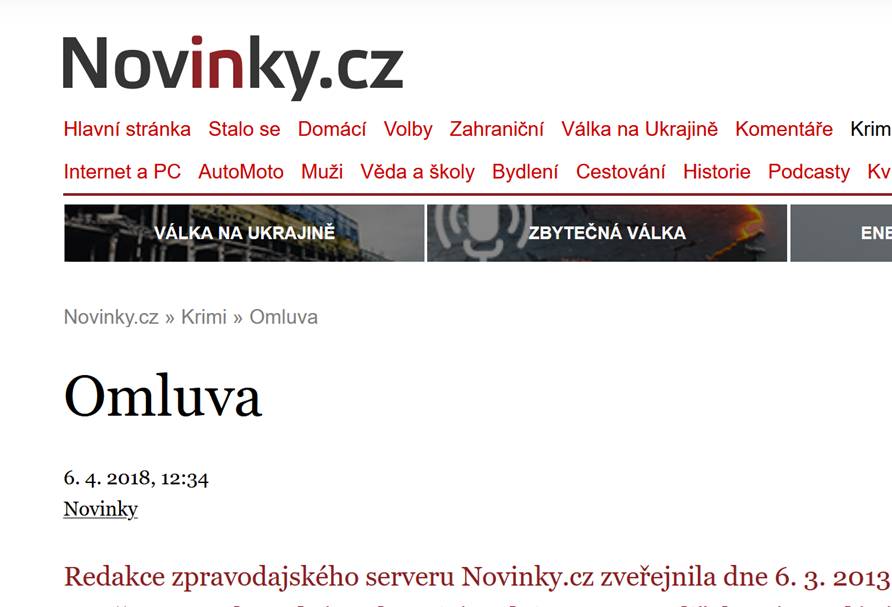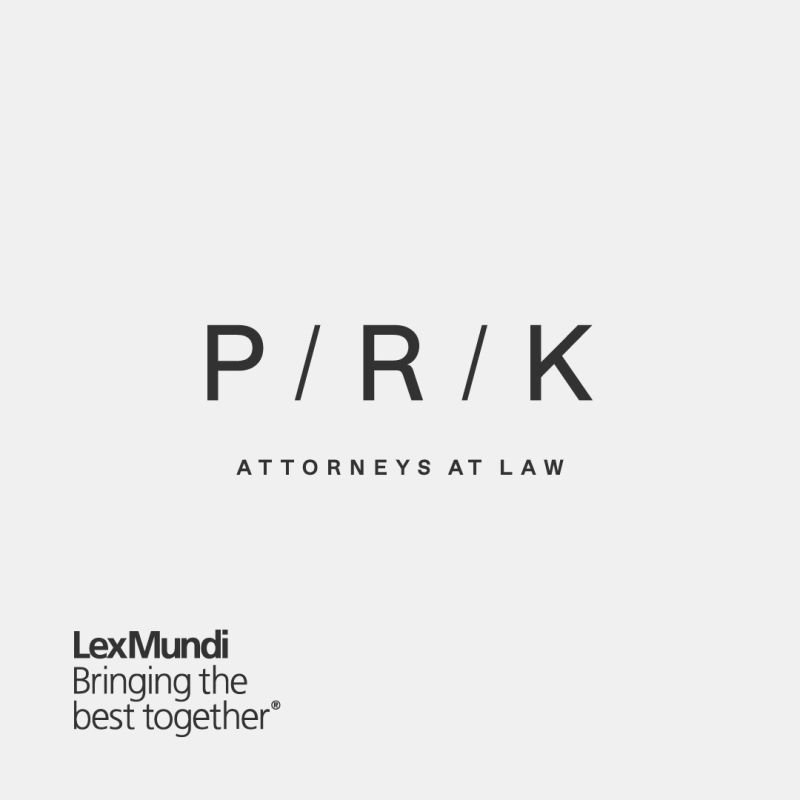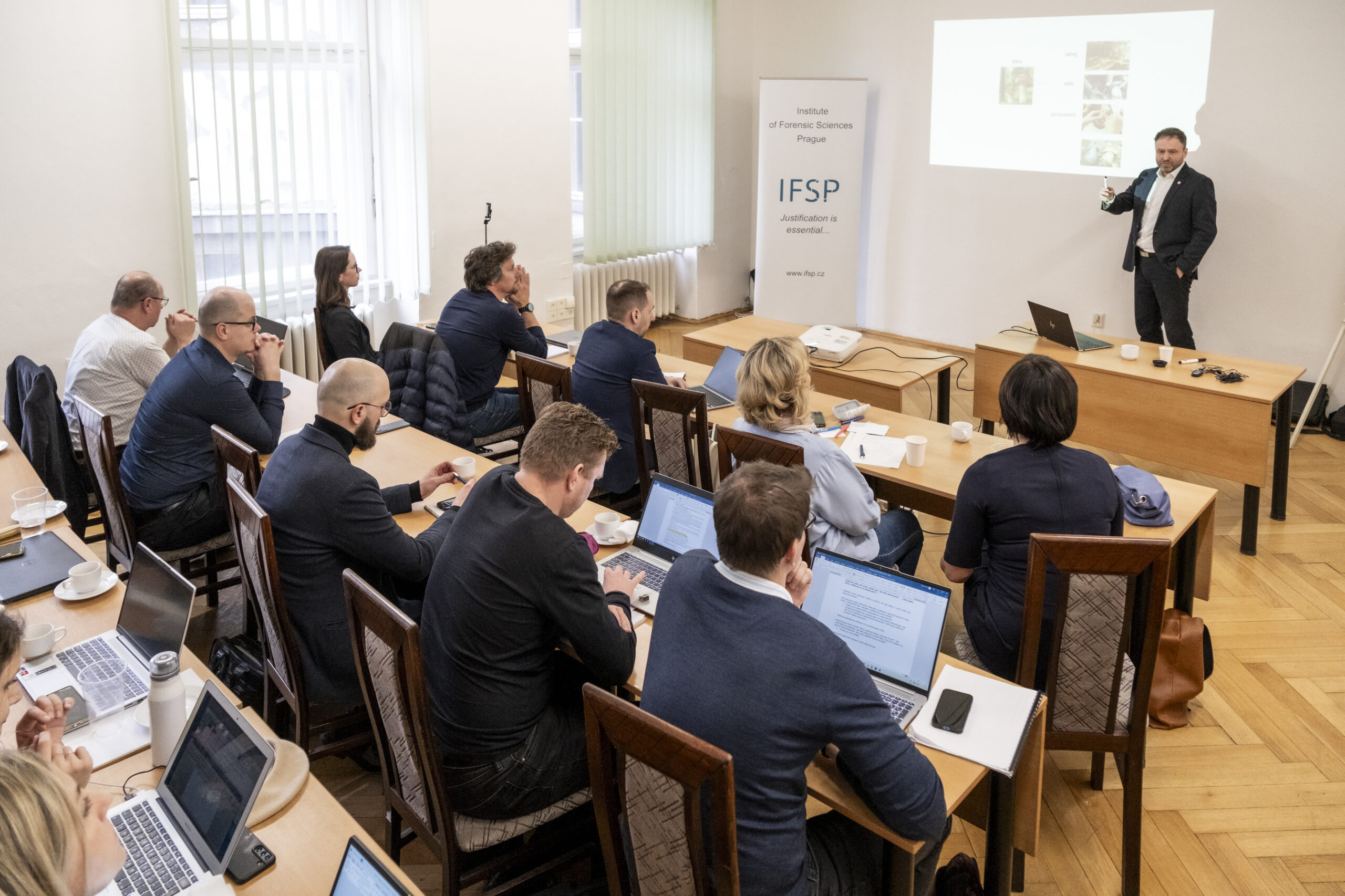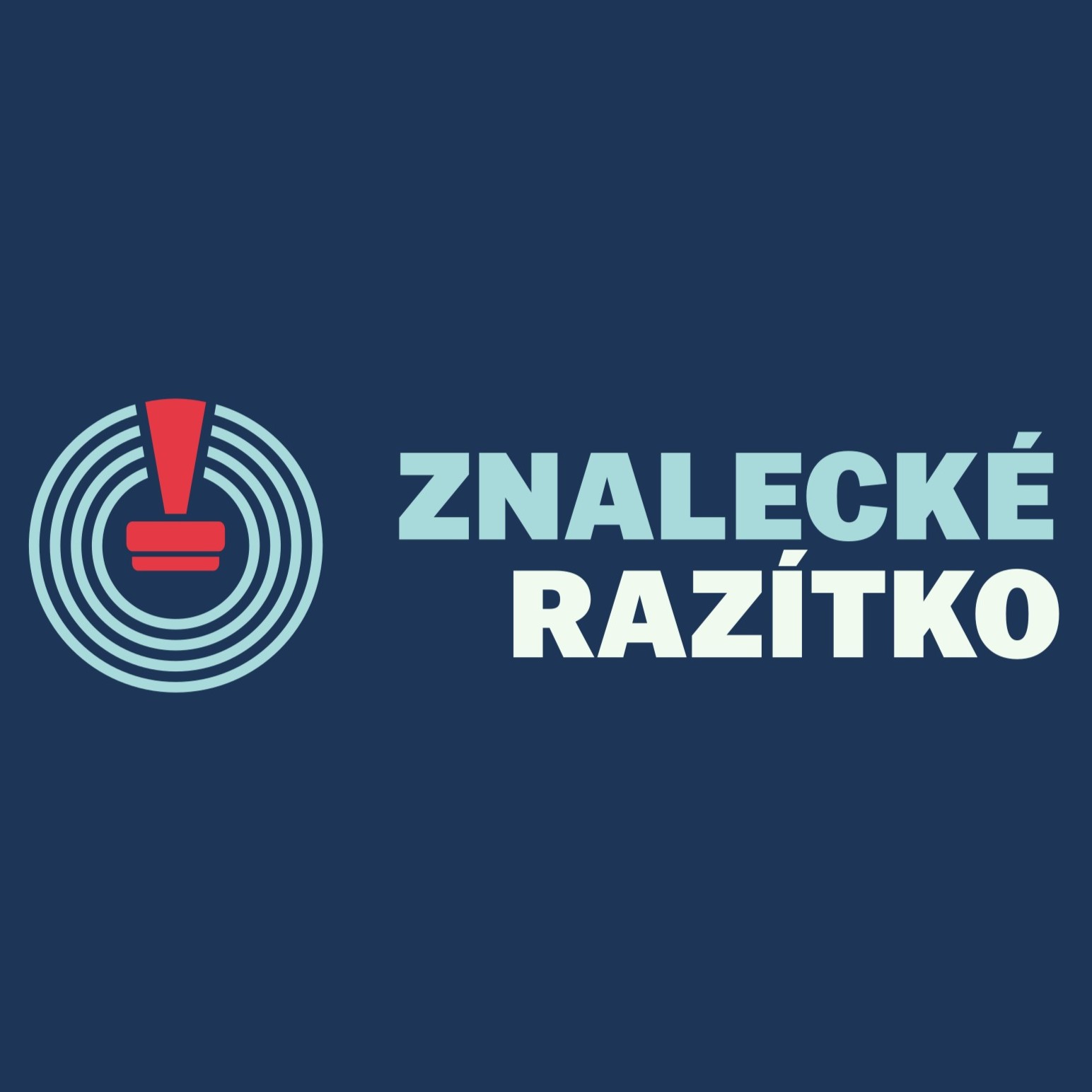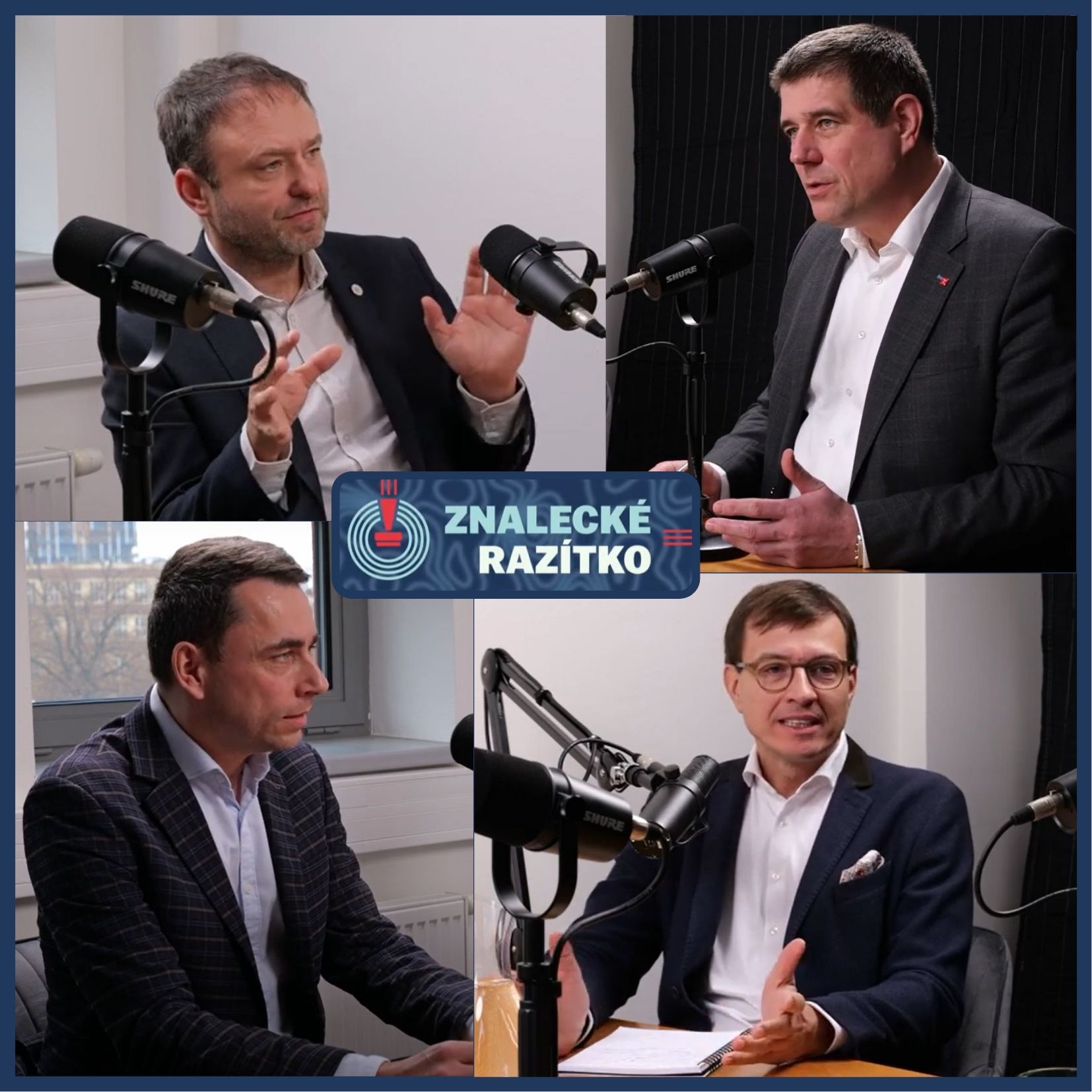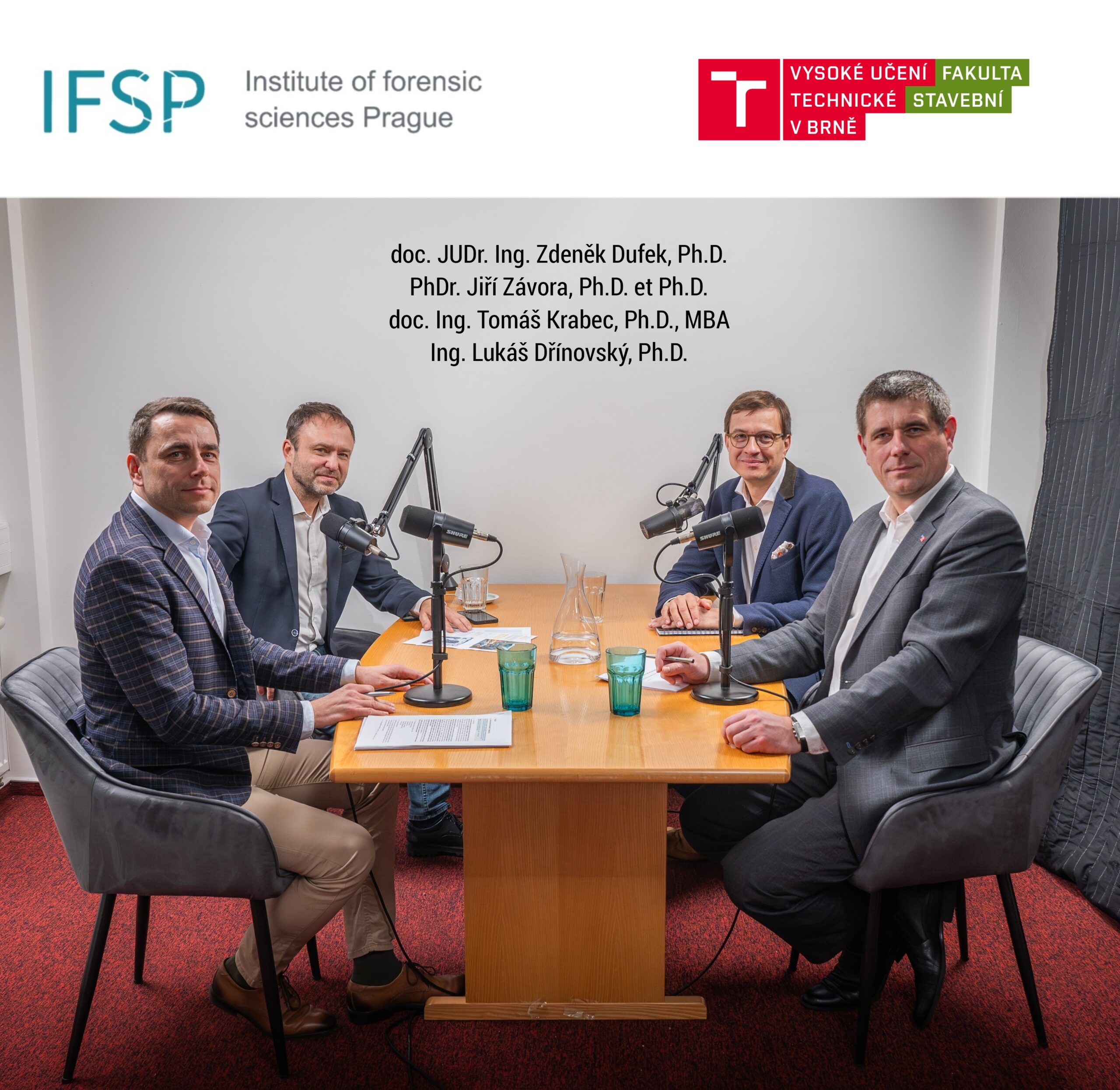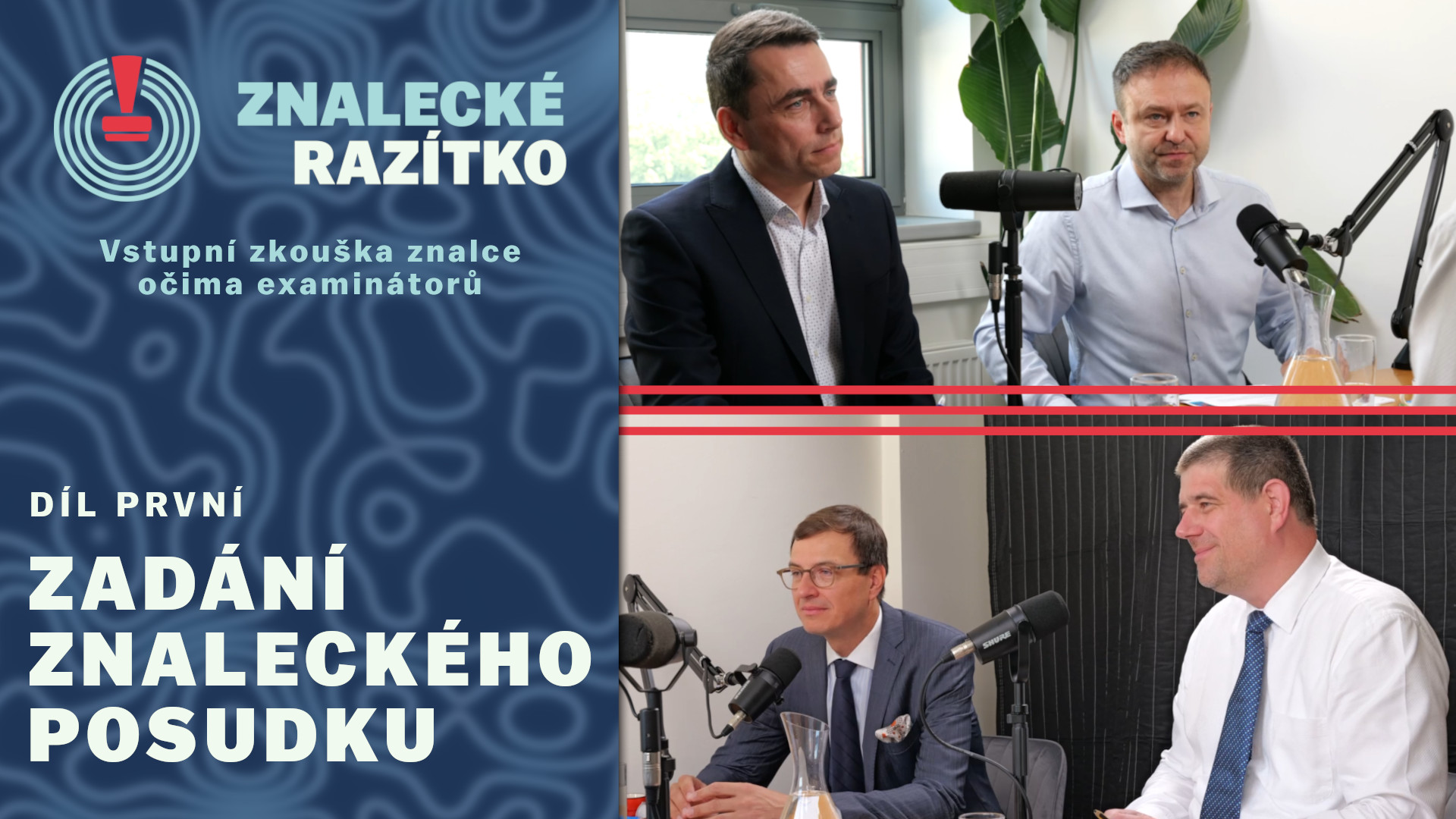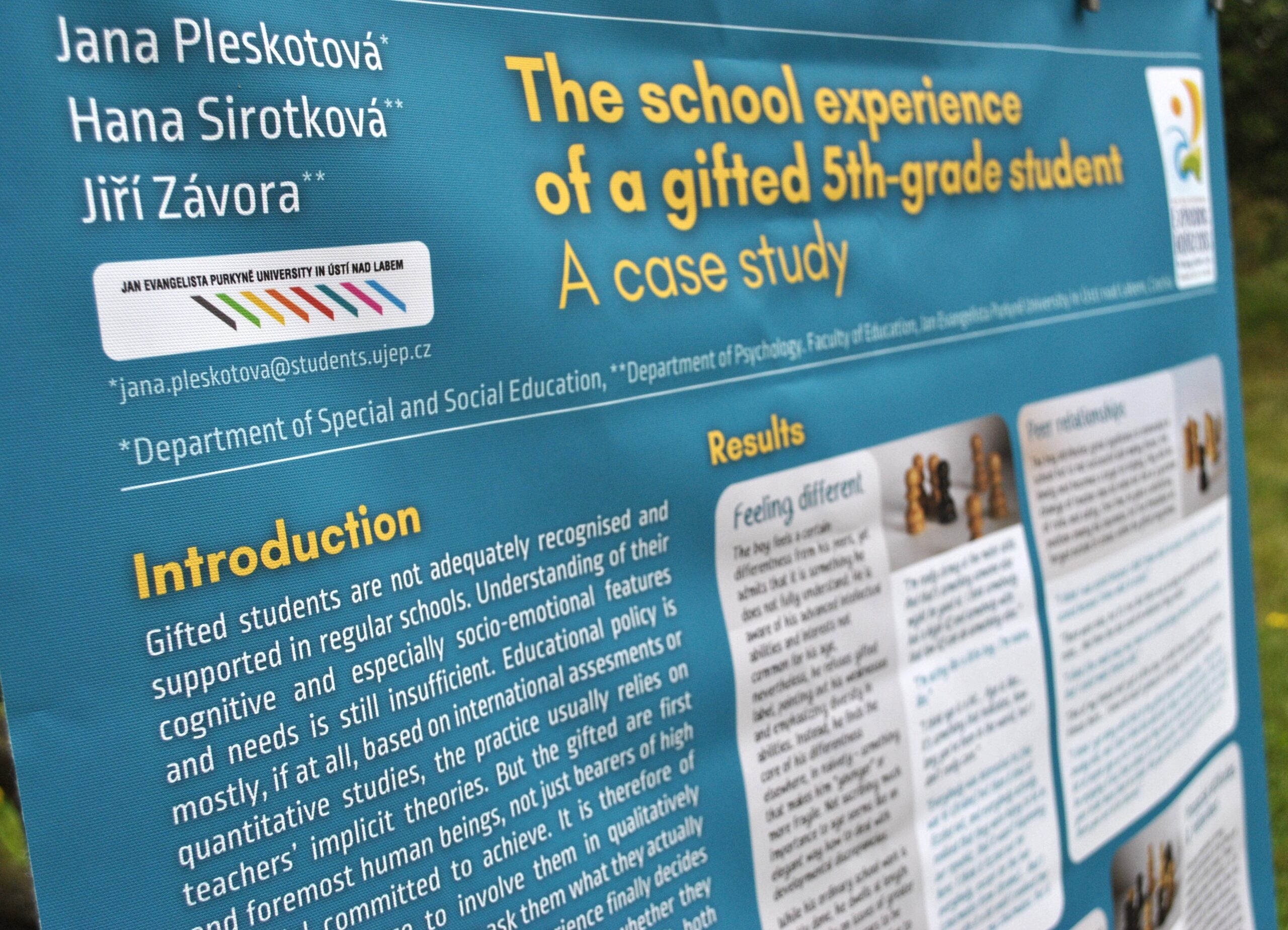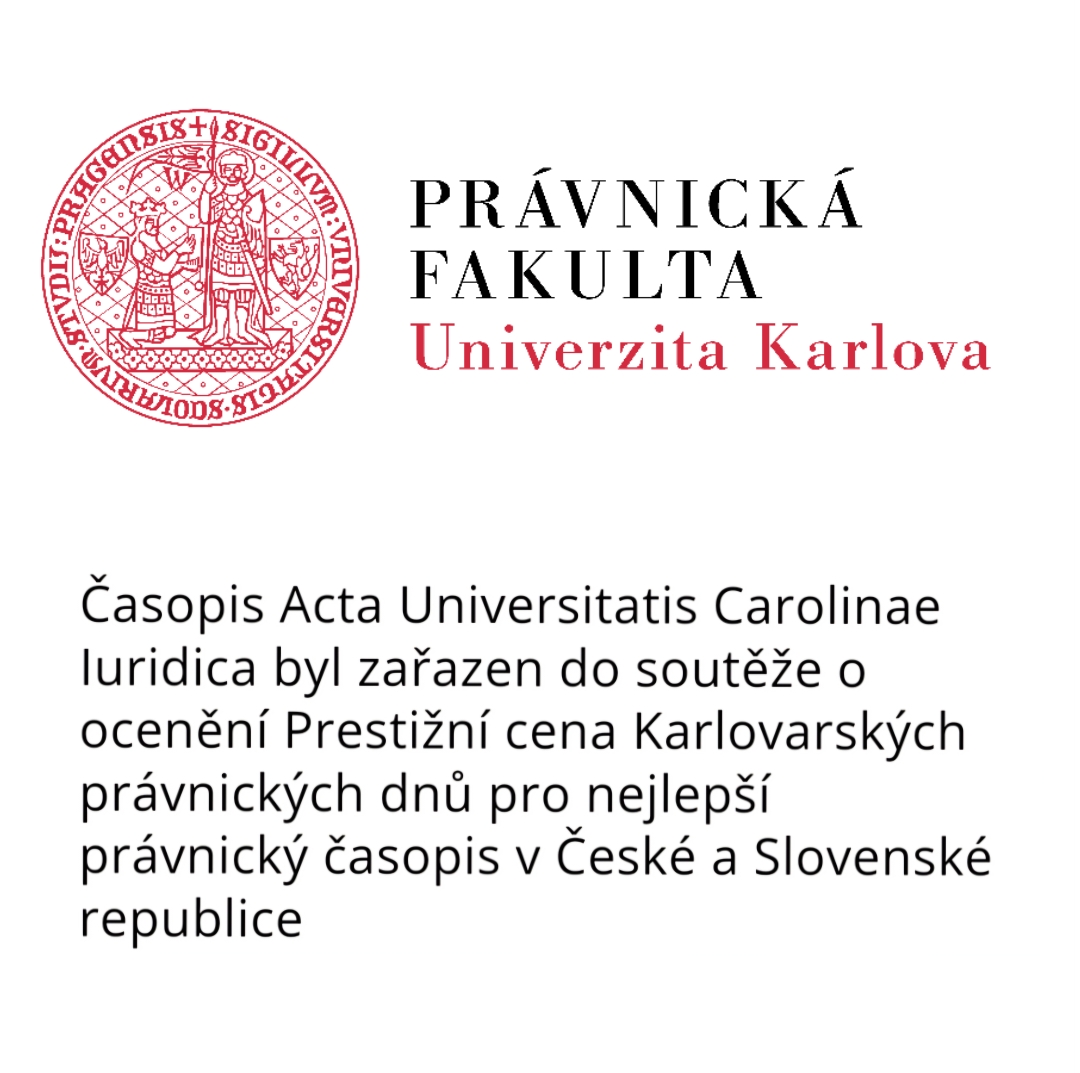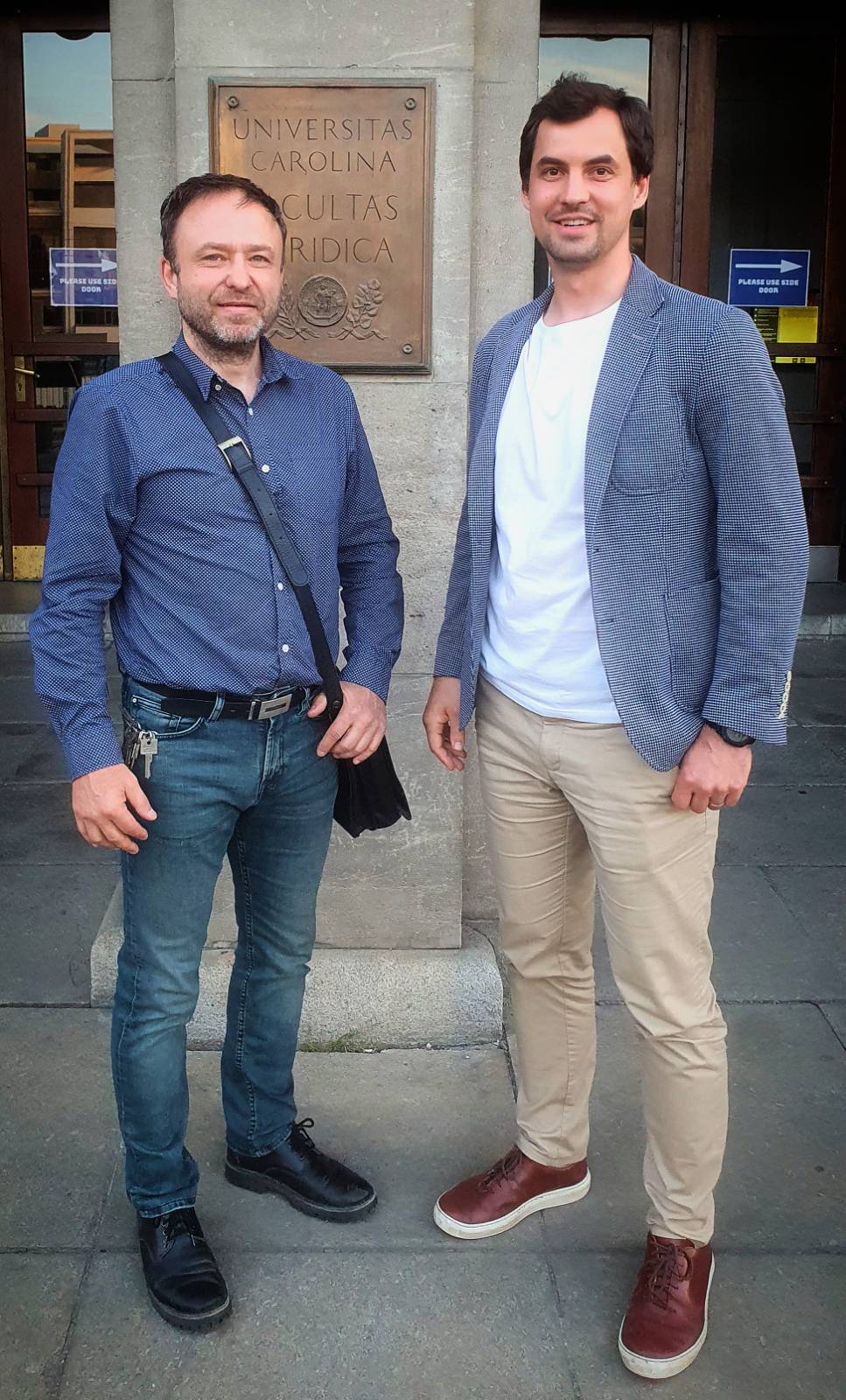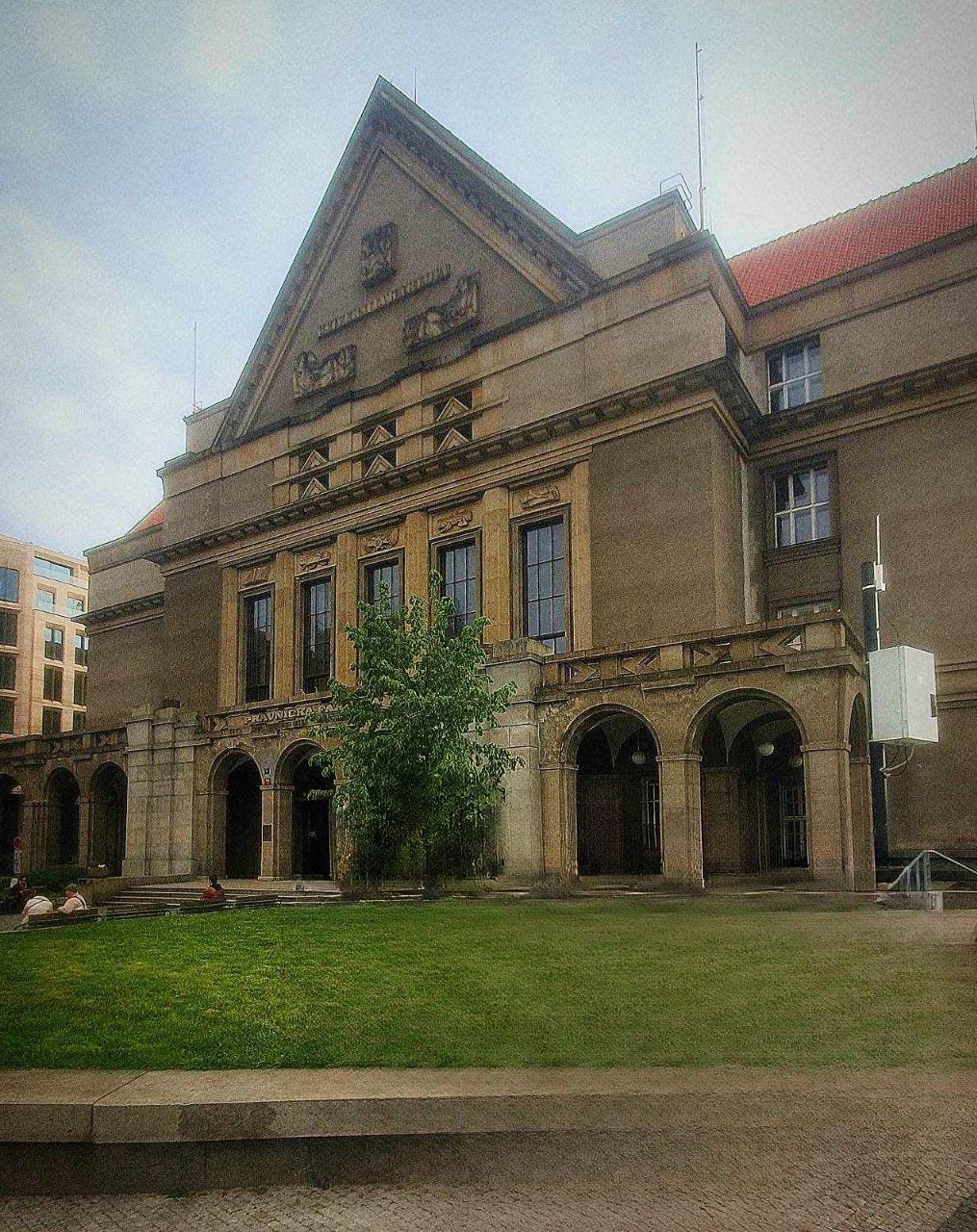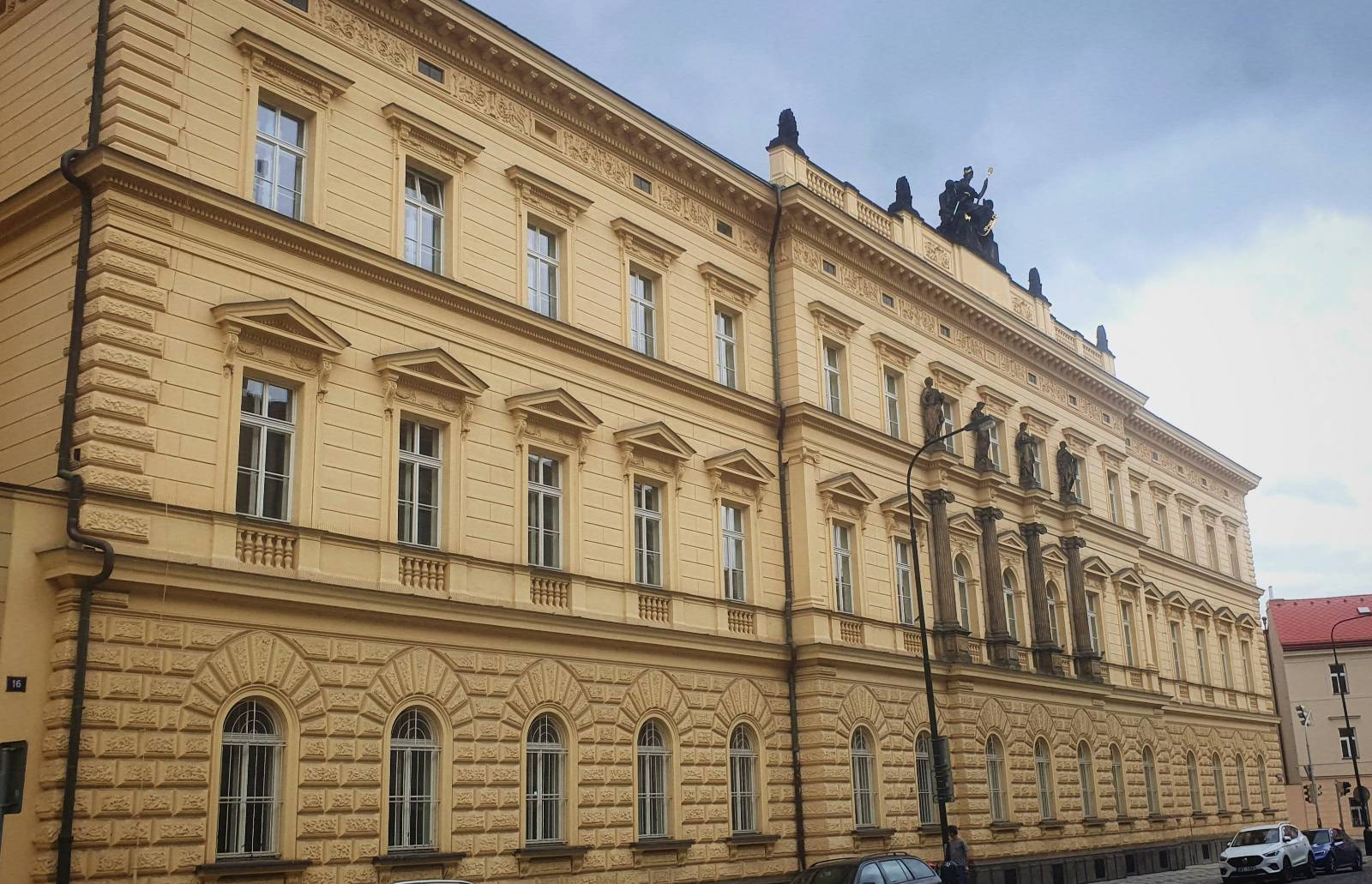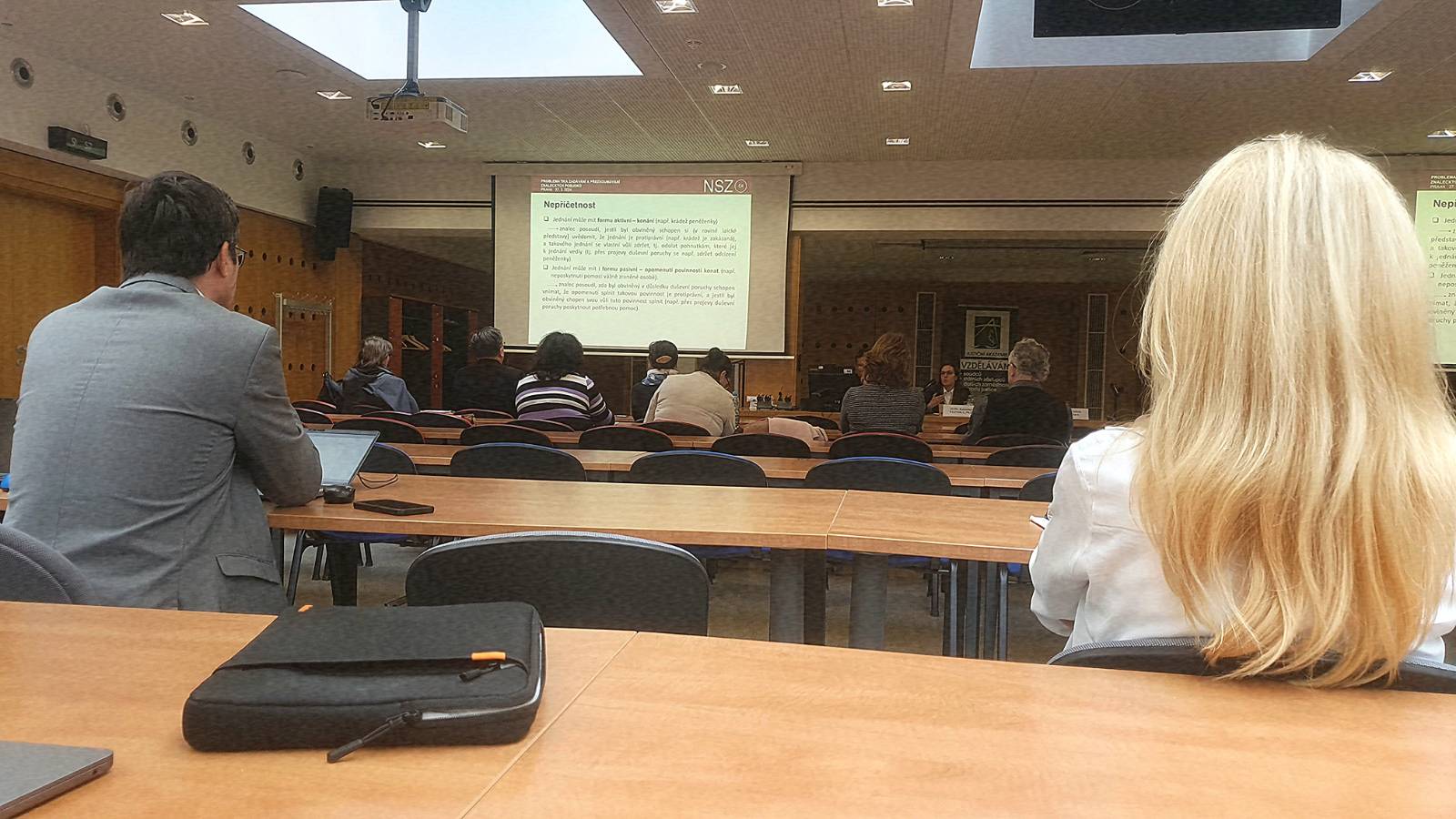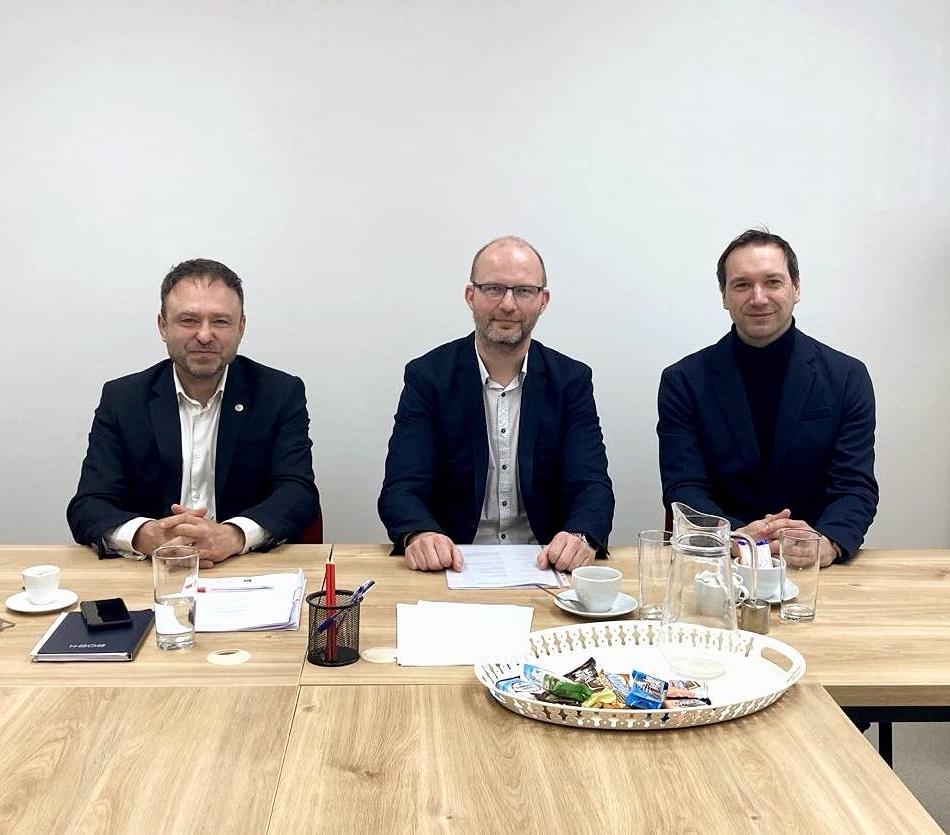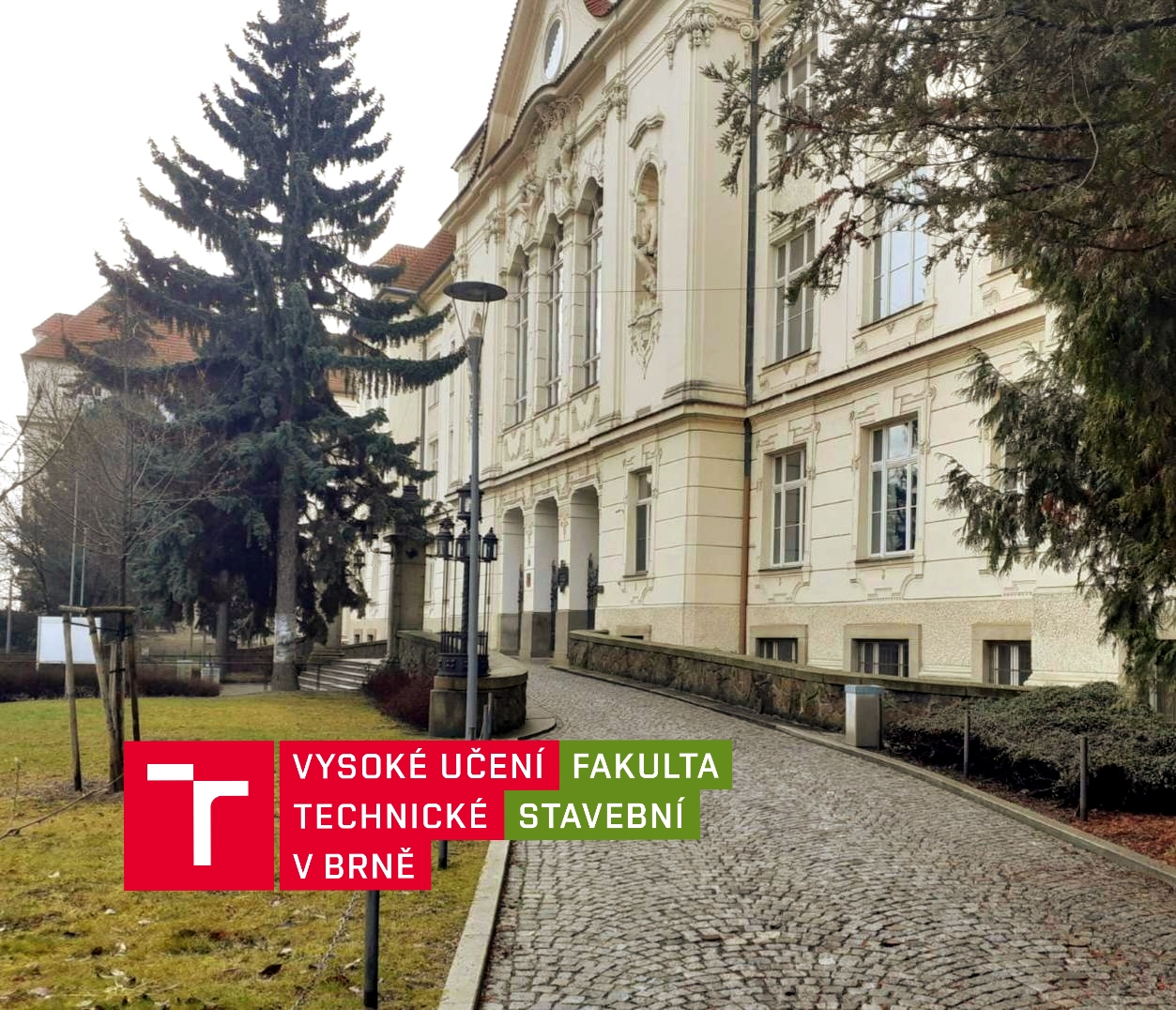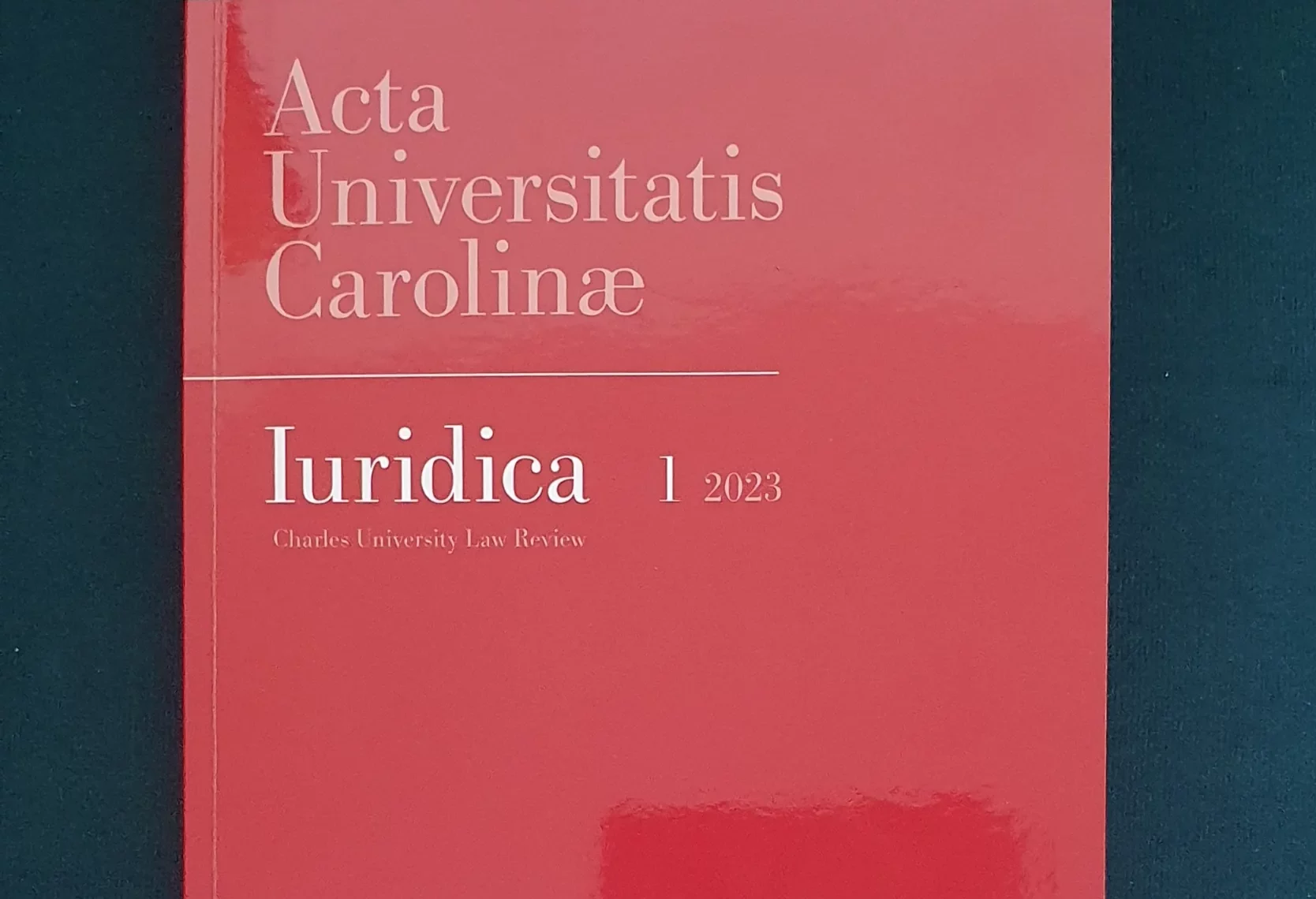Blog
15. 4. 2025
I have been involved in consulting on the Methodology for the evaluation of attestation case studies of future clinical psychologists, in which the procedure of the expert has been newly implemented, which, according to my proposal, is the principle concept of reviewability of expert opinions in the new legal regulation of expert activities. Thus, future experts in the field of clinical psychology will learn the expert witness procedure already in their pre-testing training. It is expected not only to improve the general quality of the practice of clinical psychologists in the Czech Republic, but also to improve the work of future experts in this extremely important branch of justice. The prism of the expert’s procedure will clarify the justification of the choice of diagnostic methods and their lege artis application.

Main resources
Metodika pro jednotný postup pro ukončení
specializačního vzdělávání v oboru Klinická psychologie
Závora, J. (2023). Význam požadavku na strukturovaný postup znalce dle nové úpravy znalecké činnosti. AUC IURIDICA 69(1), 45-58.
Animace – Postup soudního znalce od 1. 1. 2021
Vyhl. č. 503/2020 Sb.
Workshop for law firm
31. 3. 2025
I trained the litigation team of one of the leading Czech law firms, PRK Partners, s.r.o. The subject of the interpretation was the expert’s procedure according to the new regulation of expert activity in relation to the reviewability of the expert’s report.
19. 2. 2025
With my colleague, Mgr. Skořepa, we are co-authors of a recently published study in an impacted scientific periodical.
This is a unique qualitative research study that examines the experiences of adolescents from otherwise functional families and environments who nevertheless engage in delinquent behavior. The most difficult part of this research has been to locate these extremely specific cases (boys and girls) and to understand this specific experience.

Main resources
Závora, J., Skořepa, V., & Michalec, J. . (2025). A case study of juvenile delinquency: A girl from a functional family. Československá Psychologie, 69(1), 1-15.
Závora, J., Horynová, M., & Skořepa, V. (2024). A case study of juvenile delinquency: A boy from a functional family. Československá Psychologie, 68(4), 358-371.
15. 2. 2025
7. 2. 2025
On Friday, I trained attorneys in a practical workshop on: Expert opinion as evidence. The workshop had a very constructive atmosphere in which the rich experience of the attorneys was shared. I explained the difference between an expert’s procedure and a report on that procedure, by which the expert demonstrates how he or she has resolved a given technical question.
27. 1. 2025
2. 1. 2025
A unique study on the causes of juvenile delinquency
21. 12. 2024
Together with my colleague, Mgr. Skořepa, we are co-authors of a study accepted by an impacted scientific periodical.
The study deals with a case of delinquent behaviour of an adolescent girl in whom the usual causes of such behaviour are not present. This is a long-term project of our institute to publish two thematically similar case studies (a boy and a girl). In this case, the second study is of a girl who committed multiple thefts. This is unique qualitative research that explores the experiences of children from otherwise functional families and environments who nevertheless commit large-scale delinquent acts. The most difficult part of this project was finding juvenile delinquent who come from functional families.
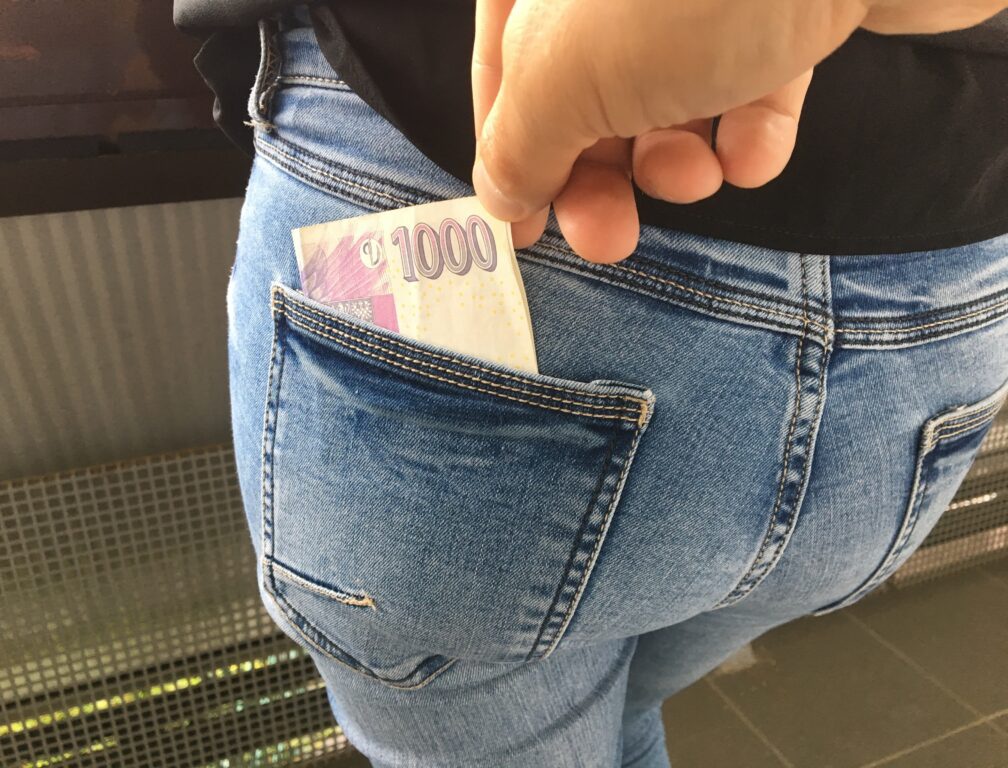
Hlavní zdroje
Závora, J., Skořepa, V., & Michalec, J. (2025). A case study of juvenile delinquency: A girl from a functional family. Československá Psychologie, 69(1).
Závora, J., Horynová, M., & Skořepa, V. (2024). A case study of juvenile delinquency: A boy from a functional family. Československá Psychologie, 68(4), 358-371.
18. 12. 2024
Podcast recording Expert Stamp
29. 11. 2024
22. 11. 2024
7. 11. 2024
The IFSP together with the Faculty of Civil Engineering at Brno University of Technology have produced a podcast miniseries dedicated to new candidates for the expert stamp. In the podcast I am joined by 3 other members or chairmen of the examination committees, doc. Zdeněk Dufek, doc. Tomáš Krabec and dr. Lukáš Dřínovský, who are prominent personalities in the field of Czech expert witnessing with unique experience. The podcast focuses on the structured procedure of the expert according to the current regulation of expert activities. The expert witness procedure is intended to improve the reviewability of expert reports.
You can already listen to the first episode on Spotify and YouTube.
The guidelines of Prosecutor General´s Office
17. 9. 2024
I consulted on the guidelines of commissioning of sample questions for psychiatric experts in criminal proceedings, prepared by the Prosecutor General´s Office. The methodology is of particular importance when commissioning expert reports in the field of health care, branch of psychiatry, which are to address the issue of the offender’s sanity. The aim of the guidelines is to improve the practice of law enforcement authorities and psychiatric experts in the performance of their expert activities.
29. 8. 2024
At the end of August, the 19th European Council for High Ability (ECHA) Conference took place in Thessaloniki. At the conference, the lead author, Jana Pleskotová, presented a case study of a ten-year-old boy with exceptional ability. Together with my colleague, Hana Sirotková, we were co-authors. The poster was well received. Amongst other conference participants, our poster caught the attention of the president of ECHA and the organisers of the next ECHA 2025 conference to be held in Karlstad. Thanks to Jana for a great representation!
26. 8. 2024
With my colleague, Mgr. Skořepa, we are co-authors of a recently published study in an impacted scientific periodical. The study deals with a case of delinquent behavior of an adolescent in whom the usual causes of such behavior are not present. This is a long-term project of our institute to publish two thematically similar case studies (a boy and a girl). This is a unique qualitative research study that explores the experiences of children from otherwise functional families and environments who nevertheless engage in extensive delinquent behaviors. The most difficult part of the research is to find these extremely specific cases and understand this specific experience.

Main resources
Závora, J., Horynová, M., & Skořepa, V. (2024). A case study of juvenile delinquency: A boy from a functional family. Československá Psychologie, 68(4), 358-371.
Hoeve, M., Dubas, J. S., Eichelsheim, V. I., Van der Laan, P. H., Smeenk, W., & Gerris, J. R. (2009). The relationship between parenting and delinquency: a meta-analysis. Journal of Abnormal Child Psychology, 37(6), 749-775.
Janssen, H. J., Eichelsheim, V. I., Dekovic, M., & Bruinsma, G. J. N. (2016). How is parenting related to adolescent delinquency? A between- and within-person analysis of the mediating role of self-control, delinquent attitudes, peer delinquency, and time spent in criminogenic settings. European Journal of Criminology, 13(2), 169-194.
Award for the best law journal in the Czech and Slovak Republics
6. 5. 2024
The scientific law journal AUCI (SCOPUS) is competing for the award of the best law journal CZ and SK. Last year I published in AUCI a theoretical study on the new principle of reviewability of expert evidence, which I authored. Structural evidence was inserted into the current regulation of expert evidence on the basis of a 2017 study I prepared on commission from the Ministry of Justice.
I was a lecturer in expert witness procedure at the Faculty of Law of Charles University
30. 4. 2024
I lectured on the procedure of an expert according to the new regulation of expert activities in the fields of psychology and identification of the writer at the Faculty of Law of Charles University. The lecture took place within the course of forensic expert witnessing, which is conducted by JUDr. Martin Richter, Ph.D. from the Department of Criminal Law of the Faculty of Law of Charles University.
Lecture for students of the Law Faculty of Charles University
23. 4. 2024
I lectured to students of the law faculty of Charles University on the problems of the expert’s procedure in the current regulation of expert activities.
Meeting of the Advisory Council of the Ministry of Justice
4. 4. 2024
I was an invited guest at a meeting of the Economic Advisory Board of the Ministry of Justice of the Czech Republic. The discussion was held on the issues of the application of the expert’s procedure in the economic sectors of expertise.
Educational event for expert psychiatrists
27. 3. 2024
With my colleague, Mgr. Skořepa, we participated in the training event of the Judicial Academy for psychiatric experts. The key topic was the reviewable procedure of the expert in solving professional questions concerning the sanity of offenders. The main speakers were Dr. Pleva and Dr. Tejnská from the NSZ.
I was examing new applicants for expert authorization at the Ministry of Justice
20. 3. 2024
For the fourteenth time, as a methodologist at the Ministry of Justice, I was examing new applicants for expert witness credentials. This time it was in the field of fire protection. This extremely important forensic field was represented in the examination committee by Doc. Ing. Petr Kučera, PhD. and the other member of the commission Mgr. Radek Kislinger.
You can find an animation and training on the expert witness procedure on our YouTube channel.
Together with my colleague I gave an interview for Seznam Zprávy on the quality of work of forensic experts
5. 2. 2024
The media image of Czech experts is shaped by highly problematic cases, but many experts in the Czech Republic are doing top-notch work, said in an interview for Seznam Zprávy, which we gave together with Mgr. Bohdana Nováková.
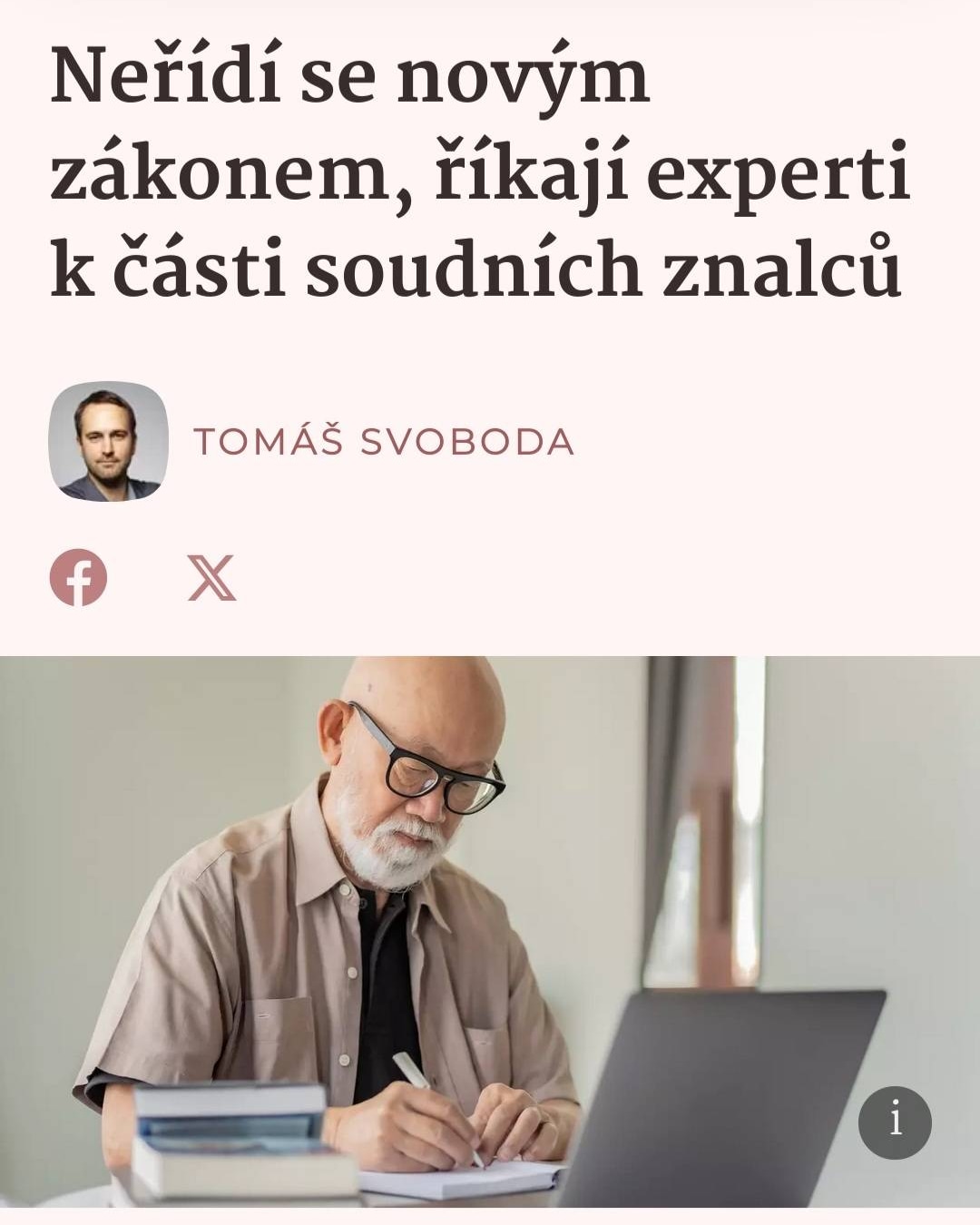
Main resources
Interview for Seznam Zprávy
24. 1. 2024
In January I gave an invited lecture at a top expert workplace, Brno University of Technology, Faculty of Civil Engineering. The topic of the lecture was of course related to the procedure of an expert according to the new legal regulation of expert activities in the Czech Republic.
21. – 23. 9. 2023
For the students of the Master Forensic Science programme we arranged a three-day internship which included lectures on the new regulation of expert performance in the Czech Republic (Dr. Závora), on the interdisciplinary project on speaker identification (Mgr. Skořepa) and on the falsity of expert opinion in the decision-making practice of courts in the Czech Republic (Mgr. Nováková).
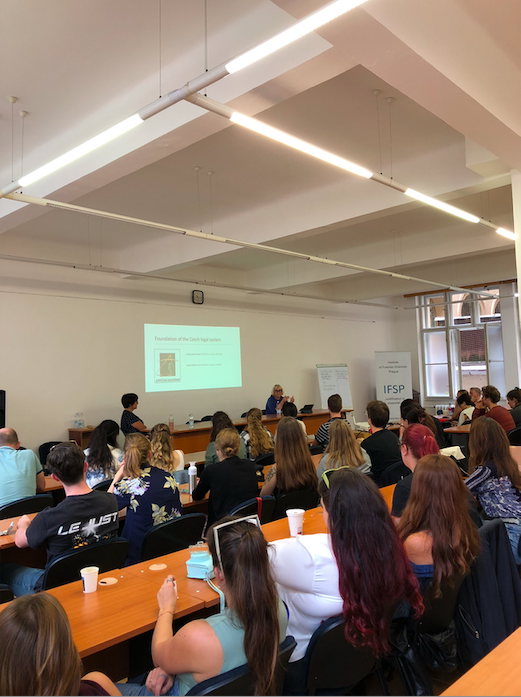
The Judicial Academy, Kroměříž
23. 5. 2023
In May, I gave a lecture in Kroměříž to the judges of the Kralovehradecky Region on the structural concept of reviewability in the new regulation of expert activities
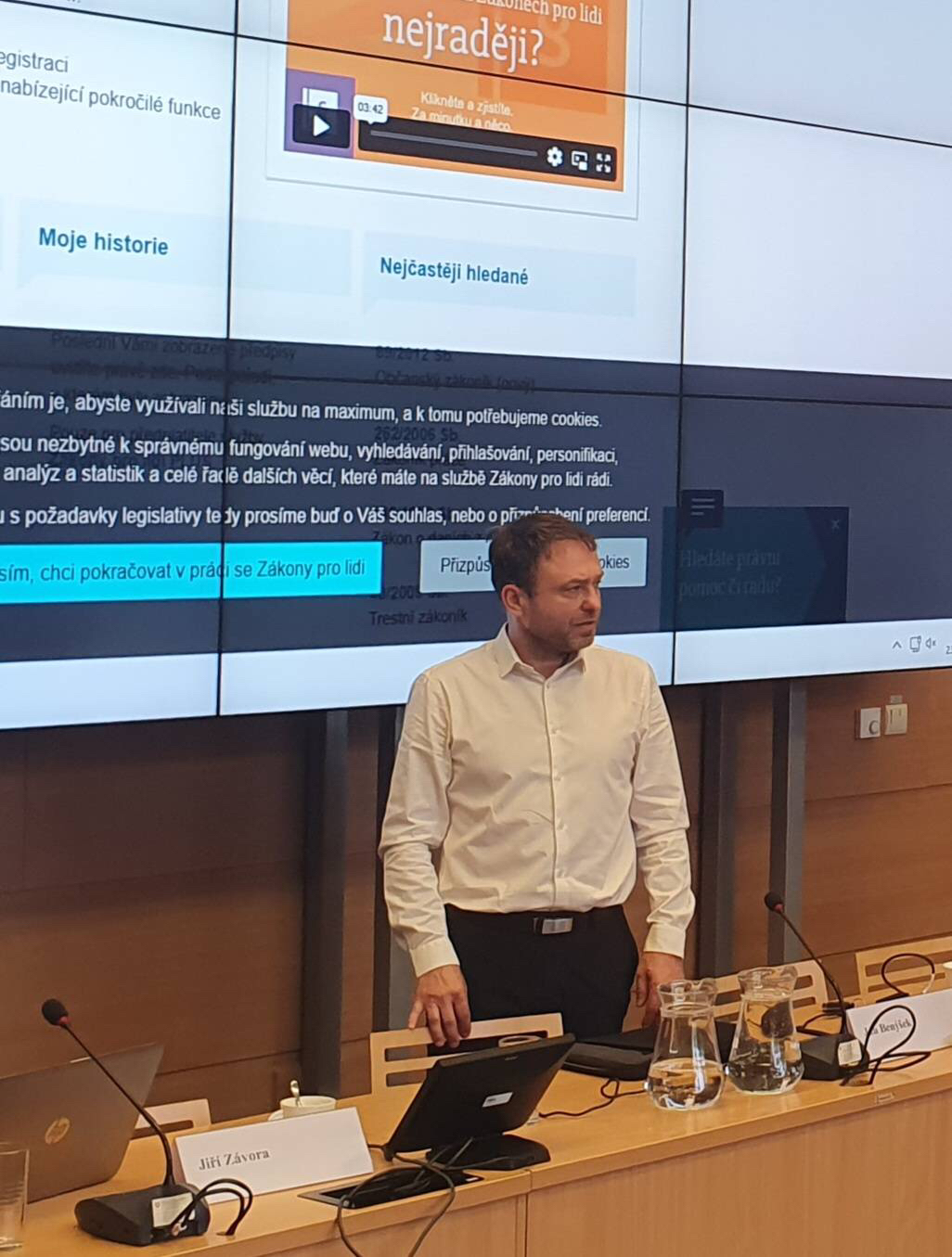
March 2023
In March, I published an article in the prestigious law journal AUCI (SCOPUS) in which I interpret the broader meaning of the structural concept of reviewability of expert reports. The codification of the expert’s procedure (Article 52 of Decree 503/2020) and the requisites of an expert report (Article 41 of Decree 503/2020) was based on my study published in 2017.
New legal regulation of expert performance
The previous legal regulation of expert performance did not provide sufficient conditions for the expert report assessment. Based on the assignment of the Ministry of Justice of the Czech Republic, a study proposing a structure-based expert procedure was formulated by a member of our institute Dr. Jiří Závora and published in 2017. On the basis of this study, Decree No. 503/2020 Coll. modified the mandatory procedure of the expert. The IFSP prepares professional workshops and creates didactic materials on the structure-based expert procedure for lawyers and experts.
Interview: About the new expert´s procedure regulation and document authentication
- An experiment verifying the quality of document authentication
- New expert regulation
- Reviewability of expert evidence
Record of training course: The expert´s procedure
- The expert´s procedure
- Structure of expert report
The Judicial Academy, Kroměříž – training course for judges
The Judicial Academy, Kroměříž
June 2022
Procedure of the expert according to the new regulation of expert performance
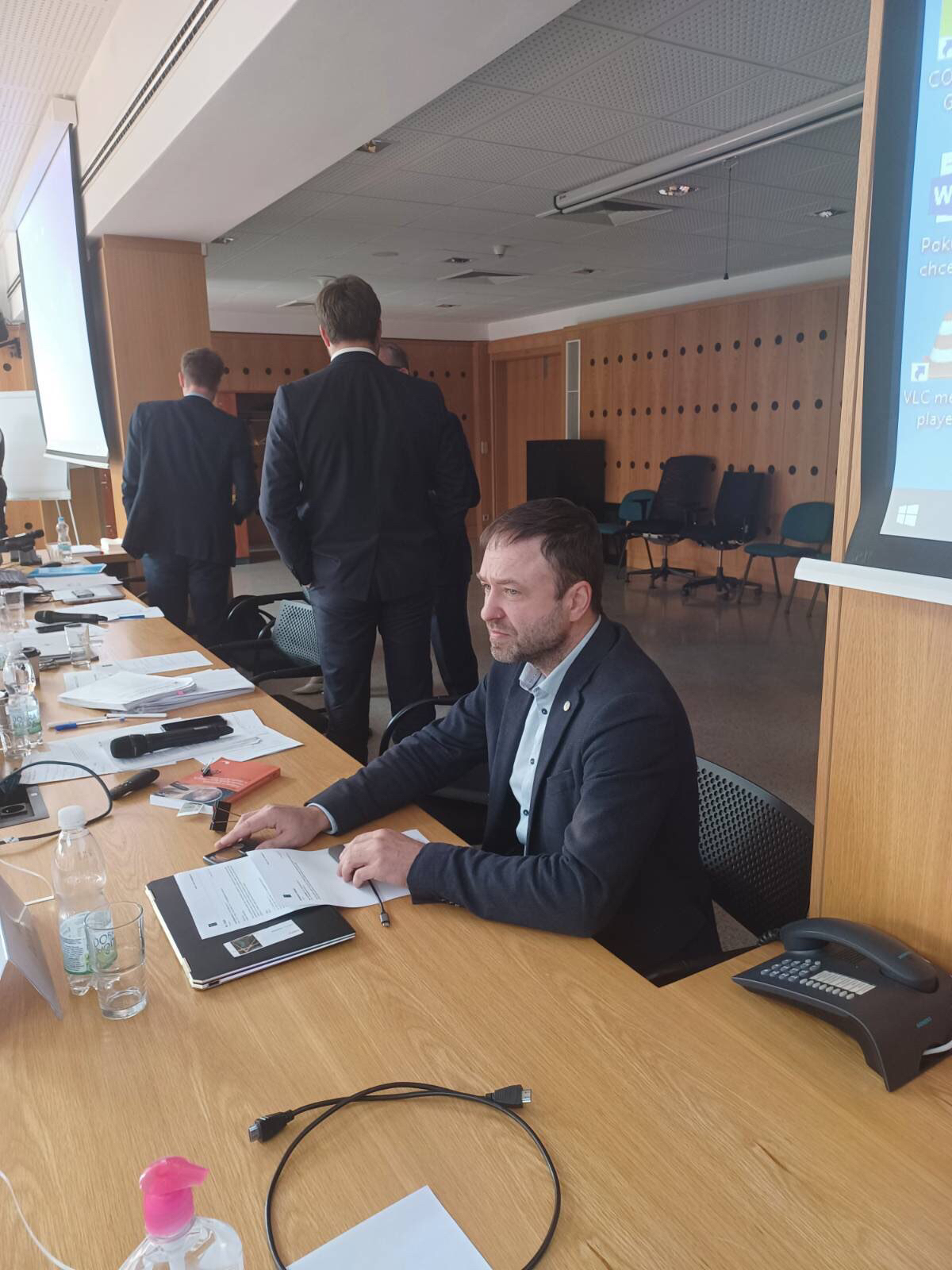
An experimental probe of the quality of document authentication in the Czech Republic
Document authentication is a public administration service confirming the existence of an original document. The authentication officer is legally obliged to recognize the original document through an authentication element (Act No. 21/2006 Coll. and Article 73 of Act No. 358/1992 Coll., Notarial Code) and to recognize an obvious forgery (Supreme Court of the Czech Republic 30 Cdo 1966/2013). To test the functionality of authentication, we conducted an experiment in which we managed to obtain an obviously dubious document authenticated in 77 % cases. Since the authenticated copy contains a clause of authenticity, it is difficult to prove a forgery. The surprising results of the experiment were published in the journal “Státní zastupitelství” but also presented in the interview “Výzva Jiřího Kubíka”. The experiment attracted widespread media attention.
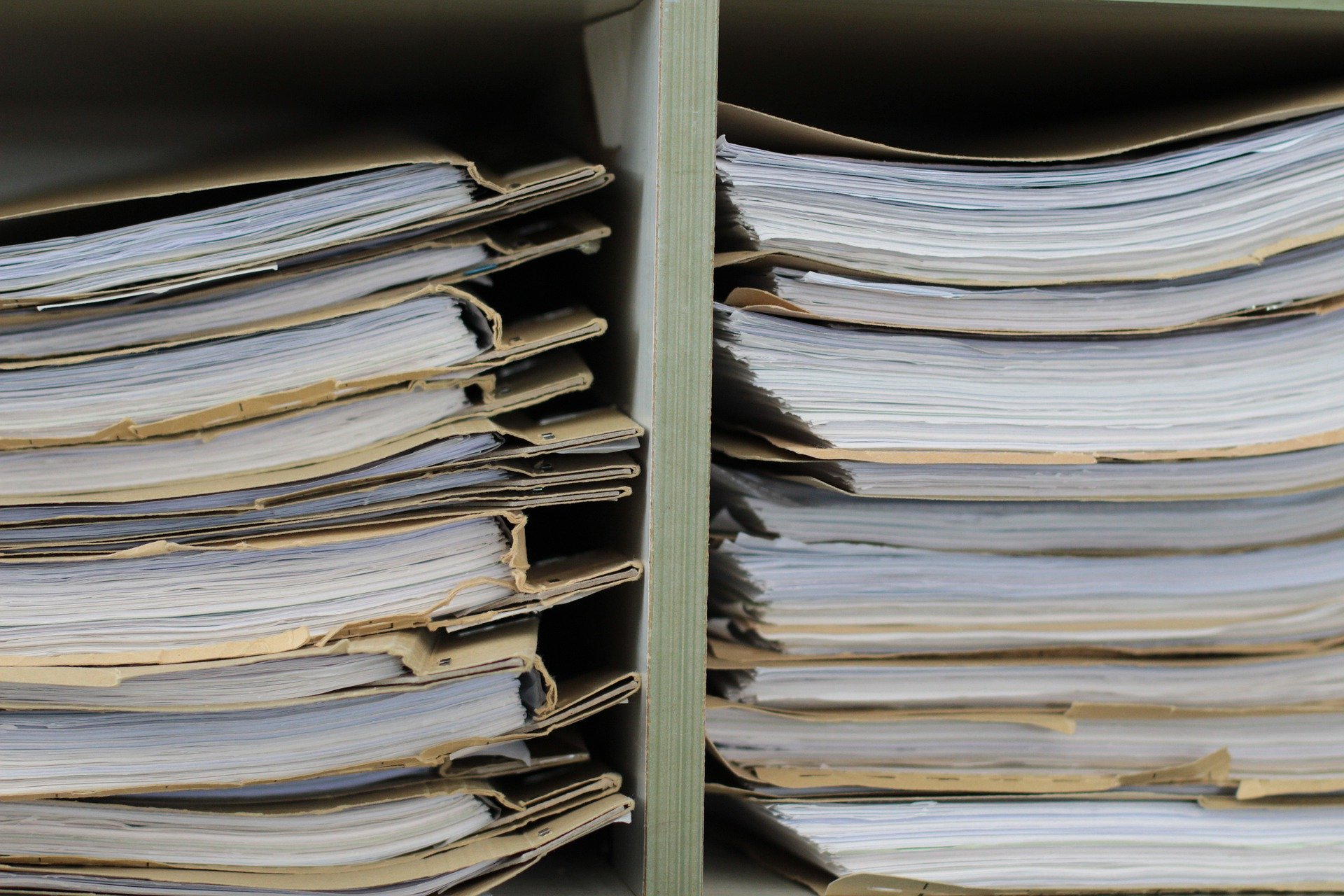
Main resources
Závora, J., et al. (2019). Experimentální sonda do kvality provádění vidimace v ČR. Státní zastupitelství 2, (142) s. 39-43
Výzva Jiřího Kubíka
Skandál ve státním systému
Ověřování padělku na uřadech – pomohly by lupy
Ověřování padělku je velký problém – rozhovor s JUDr. Tomanem
Seznam úřadů, které v experimentu uspěly
Definice pojmů
20 Cdo 3259/2007
30 Cdo 1966/2013
Interview: Výzva Jiřího Kubíka
February 2019
Main resources
Addressed conclusion of expert´s opinion
If the name of the writer is mentioned in the conclusion of the expert’s report, the expert must state in the data production section (§ 41 (2) Regulation No. 503/2020 SB) that he personally carried out a handwriting experiment in which he saw the writer in question write. At the same time, in the data processing section, the expert must state that he has carried out a thorough validation (§ 55(2)) of the entire comparative sample, i.e. both the collected and requested handwriting samples. Otherwise, the expert can only formulate a conclusion (§ 58) that is non-addressed, i.e. signed/unsigned by the writer of the comparative samples.

Main resources
Závora, J. (2013c). K adresným závěrům písmoznaleckých posudků a důsledkům vědecky nekorektních postupů. Státní zastupitelství, 5, (XI) 44-47.
Závora, J. (2018). Absence validace jako skrytá vada písmoznaleckého posudku. Právní rozhledy 18, s. 641-643.
Postup soudního znalce od 1. 1. 2021
Vyhl. č. 503/2020 Sb.
Podcast: Forensic handwriting identification part I.
June 2021
- Handwriting identity in criminal proceedings
- Handwriting identity manifestations
- Different aims and methods of graphology
- Handwriting identity analysis
- Disguising handwriting identity
Podcast: Forensic handwriting identification part II.
June 2021
- A perfect forgery
- Biometric signatures
- Problems with authenticated documents
Podcast: Forensic handwriting identification part III.
September 2021
- Nemotenetur principle and handwriting samples provision
- The importance of the handwriting experiment
- Cognitive bias of the expert
- Unacceptable legal evaluation and interference in proceeding participant´s evidence initiative
- Expert report in criminal and civil proceeding
Main resources
Trest Online
October 2021
Comment on President Miloš Zeman’s signature on the document convening the session of the Chamber of Deputies
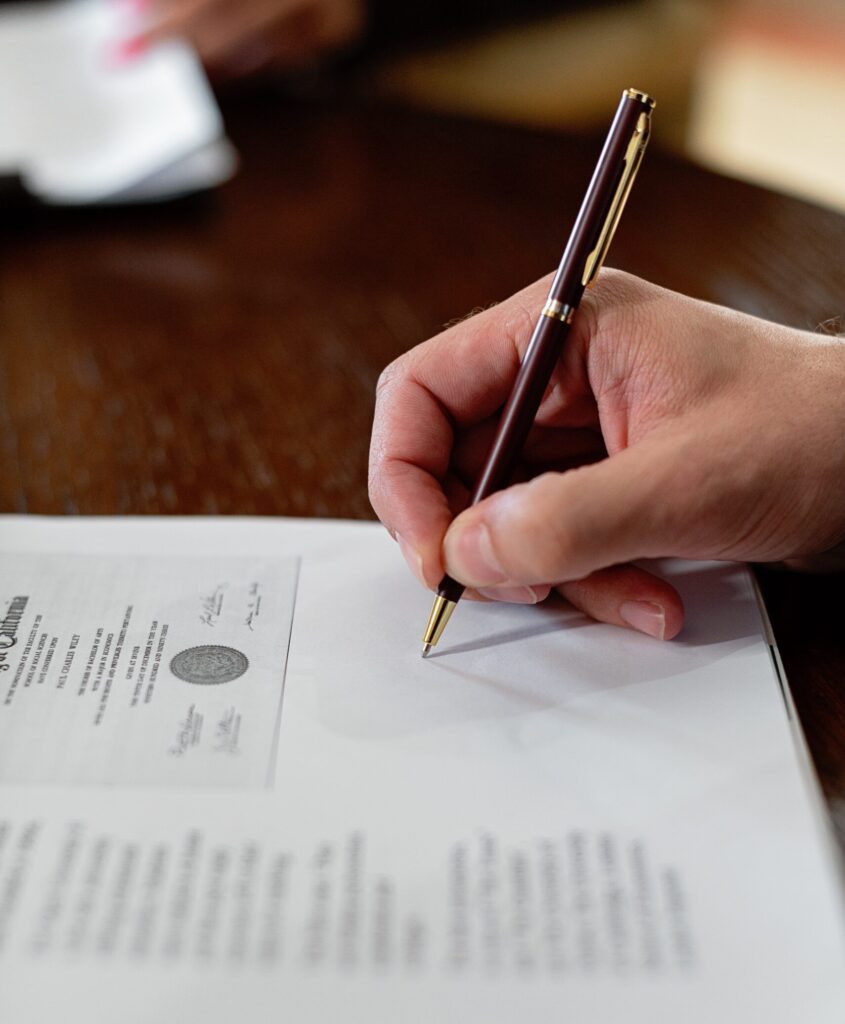
Apology
6. 4. 2018
The editorial staff of the news server Novinky.cz has published an apology for misleading information that affected my honour and dignity
